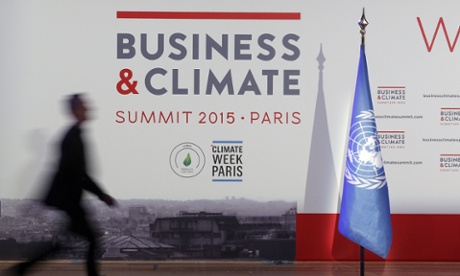I have spent almost 50 years working in the extractive industries or related fields. Indeed, as a director of Saudi Aramco, I still do. I have always considered that the supply of reliable economic and convenient energy makes an essential contribution to the economic and – in many cases – social and sustainable development of society.
However, as with most things we humans set our hands to, this has never been without downsides.
Fired by coal and powered by steam, the industrial revolution brought progress from which we all benefit today. Damaging local environmental side-effects were addressed by a gradual switch to cleaner burning and less polluting hydrocarbon fuels. However, another more global side-effect has emerged: climate change.
In the late 1990s, Shell and BP publicly acknowledged this and have not retreated from this position. Although both companies have effectively withdrawn from solar and wind energy, I believe Shell is probably the world’s largest producer of biofuels and one of the largest producers of hydrogen.
It surprises many people that Saudi Aramco is investing in both solar and wind energy, to avoid the waste of hydrocarbons needed to meet Saudi Arabia’s seemingly insatiable, and often wasteful, use of energy.
The industry is not, as Jonathon Porritt might have us believe, a bunch of climate change-denying dinosaurs living in what he calls “a morality free zone”, whose economic interests blind us to change. Of course, there are those in the industry – I suspect in about the same proportion as in all walks of life – who question the almost universally-accepted orthodoxy.
Unfortunately, recognising a problem is not the same as finding a solution. In this case, the solution is made more difficult by the reliance of the present global economy on the supply of relatively affordable and convenient energy from fossil fuels.
Time for carbon price
Were it not for the urgency imposed by the threat of rapid climate change, we could relax in the knowledge that a gradual evolution of the global energy system would continue: the same process that has been going on for more than a century. However, as a result of climate change, there is a need to accelerate the transformation.
I suggest that there are two essential drivers of change, both of which require cooperation between different sectors of society.
The first is putting a price on carbon. This is one of the rational methods of encouraging the development of a low-carbon economy and of differentiating between more and less damaging forms of fossil fuels. Shell, BP and many in other industries have called for this and have applied it internally when making investment decisions. My preference would be for an effective cap and trade system, which gives us some chance of avoiding the most damaging consequences of climate change, but in the absence of this a carbon tax is a start, although a less ideal and flexible one.
While I am a strong believer in the power of markets and price signals, regulatory frameworks are necessary to guide the market in societally desirable directions. This approach can be used to set minimum carbon efficiency standards which would, in the absence of carbon capture and storage, effectively restrict fossil fuel consumption for power generation to low carbon intensity fuels.
Fossil fuel stalemate
So why do we not see faster adoption of these two relatively simple approaches to driving our energy systems in a sensible direction? It is probably because each part of society shifts the responsibility of action to another. Governments are nervous about moving faster because of the reaction of consumers and voters to increasing costs. They are also concerned about damaging the economy and of reducing industrial competitiveness.
Businesses in various sectors stoke this fear, while at the same time complaining that governments are not grasping the mettle and working to establish an effective carbon price or regulatory framework. Consumers (including perhaps Jonathon Porritt?) put all the blame on companies for not investing in the right things.
It puzzles many people that oil companies continue to develop oil and gas fields and seek new sources, when one day we may only need hydrocarbons for petrochemicals and lubrication. Although the demand for liquid hydrocarbons is declining in Europe and North America due to increased efficiency, it is growing elsewhere as economies develop and modernise.
These developing economies will not follow exactly the same path as the OECD countries have done, but most people see a continued rise in global demand for oil and gas, before it reaches a downward turning point. In the meantime, we have to find and develop enough hydrocarbons to meet the growing demand and, equally important, offset the decline of existing sources.
Any thoughtful energy company will be working to make sure its own portfolio of assets remains robust against relatively high carbon prices. There are serious economic risks in erring in either direction, just as there are climate risks if we do not manage the energy transition properly.
I do not believe this means those working in one part of the market are morally bankrupt or less responsible than others. It does mean that we need to unite to put in place the price and regulatory frameworks to ensure a rational social and economic transition.
The leadership hub is funded by Xyntéo. All content is editorially independent except for pieces labelled ‘brought to you by’. Find out more here.
Join the community of sustainability professionals and experts. Become a GSB member to get more stories like this direct to your inbox.










